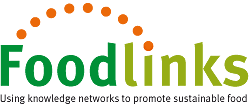Dr. Roberto Ruiz
NEIKER – Instituto Vasco de Investigación y Desarrollo Agrario
Campus Agroalimentario de Arkaute, P.O. Box 46
E-01080 Vitoria-Gasteiz
Spain
Tel.: +34 945 121 334
Fax: +34 945 281 422
E-Mail: ![]() rruiz(at)neiker.net
rruiz(at)neiker.net
Urban food strategies
Vitoria-Gasteiz Urban Food Network
- Country: Spain
- Foodlinks theme: Urban Food Strategies
- Year started: 2005
Targets & measures
The activities related to sustainable food, which are implemented by the municipality of Vitoria-Gasteiz and the local government, are:
- Promotion of organic horticulture for self-consumption (since 1998),
- Public organic food procurement program in five kindergartens (since 2009),
- Promotion of professional entrepreneurship in organic agriculture on Basaldea, an area of around 12.5 hectares, a property of the City Council (since 2011),
- Improvement of the market in the city centre (since 2011).
In addition, many events are regularly organised in Vitoria-Gasteiz by a set of organizations of the civil society to call the attention of the population to the importance and impact of practices and habits regarding food consumption and production: Encuentro Civico Alimentario (Food Civic Encounter , organic food market, Transparent Markets, school gardens, etc. These events are usually organised by one, two or even more of these organizations.
The current challenge within the city is to consolidate the establishment of a settled urban food network and, then to design a sustainable urban food strategy.
Interaction and knowledge brokering activities
The activities implemented by the municipality depend on different departments of the municipality and are implemented basically independently from the others and those of the civil society organisations:
- The Centre for Environmental Studies: organic horticulture for self-consumption,
- The Department of Education: responsible for the organic PFP (Public Food Procurement) in kindergartens,
- The Department of Economical Promotion, with the Basaldea project. However, this initiative was originally proposed by Zadorra Foundation in 2005, but has recently been recovered and modified in collaboration with some civil society organisations and Research and Development Centres.
The civil society working actively in Vitoria to foster sustainable food production and consumption patterns is mainly represented by: The Zadorra Foundation (promotion of agroecology approaches); Local Convivium of Slow Food; Local Farmers’ Union of (UAGA); Associations of organic farming (Bionekazaritza and Natuaraba); Bio-Alai (association of consumers of organic food) and Gasteiz en transición (transition towns). "Transition towns" is a network of communities working in favour of more resilient cities http://en.wikipedia.org/wiki/Transition_Towns ![]() . Within the community of Vitoria-Gasteiz, there is a group working on food related issues.
. Within the community of Vitoria-Gasteiz, there is a group working on food related issues.
Activities and events are usually organised by one, two or even three of these organizations, and the role of the local administrations (City Council and Regional Government) usually consists of (co-)funding and communicating.
Initiation
In 2005, the Zadorra Foundation stated the need to start working in favour of a more sustainable food system for the city. Since then, this idea has been also adopted by other stakeholders. Whereas the municipality started promoting organic agriculture in 1998, it has only recently started to widen the scope and range of activities related to sustainable food.
Further information
Websites
- http://www.vitoria-gasteiz.org/we001/was/we001Action.do?idioma=es&accionWe001=ficha&accion=greenCapital

- http://slowfoodaraba.es/

 This website was archived on November 14, 2013 and is no longer updated.
This website was archived on November 14, 2013 and is no longer updated.


